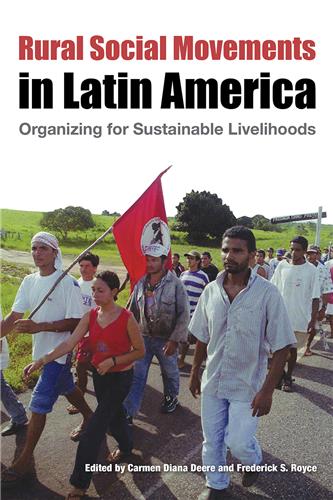Transnational Politics in Central America
Luis Roniger
Hardcover: $74.95
Paper: $19.95
Paper: $19.95
"Finally, a study that moves beyond abstract assertions of the importance of a transnational perspective to demonstrate compellingly why transnationalism matters in the specific context of Central America. This is a rich, interdisciplinary look at regional history, politics, and society--of immense value for students of Latin American studies and transnationalism alike."--Thomas Legler, coeditor of Promoting Democracy in the Americas
Political theorists tend to write about the countries of Central America (Belize, Costa Rica, El Salvador, Guatemala, Honduras, Nicaragua, and Panama) either as individual nation-states or as the pawns and victims of international intervention. What these approaches ignore is the shared history of these countries, which were a single nation until domestic and colonial forces dissolved it in the early nineteenth century.
In Transnational Politics in Central America, Luis Roniger argues for the importance of examining the connected history, close relationships and mutual impact of the societies of Central America upon one another. Eschewing well-trod theoretical approaches that do not account for the existence of transnational dynamics before the current stage of globalization, this landmark book identifies recurring trends of state fragmentation and attempts at reunification or social and political association in the region over the past two centuries.
Luis Roniger, Reynolds Professor of Latin American Studies at Wake Forest University, is the author of fourteen books, including The Legacy of Human Rights Violations in the Southern Cone; Democracy, Clientelism, and Civil Society; and The Politics of Exile in Latin America.
Political theorists tend to write about the countries of Central America (Belize, Costa Rica, El Salvador, Guatemala, Honduras, Nicaragua, and Panama) either as individual nation-states or as the pawns and victims of international intervention. What these approaches ignore is the shared history of these countries, which were a single nation until domestic and colonial forces dissolved it in the early nineteenth century.
In Transnational Politics in Central America, Luis Roniger argues for the importance of examining the connected history, close relationships and mutual impact of the societies of Central America upon one another. Eschewing well-trod theoretical approaches that do not account for the existence of transnational dynamics before the current stage of globalization, this landmark book identifies recurring trends of state fragmentation and attempts at reunification or social and political association in the region over the past two centuries.
Luis Roniger, Reynolds Professor of Latin American Studies at Wake Forest University, is the author of fourteen books, including The Legacy of Human Rights Violations in the Southern Cone; Democracy, Clientelism, and Civil Society; and The Politics of Exile in Latin America.
No Sample Chapter Available
"Constructs a useful transnational framework to analyze the fragmentation of a once united territory into separate sociopolitical entities in the Central American region, and to show how this region has yet retained significant interconnectivity across those national boundaries. A valuable addition to the collections of most academic libraries."
--Choice
“Provides substantive empirical and historical evidence to the idea that transnational dynamics were present in Central America since colonial times.”
--Bulletin of Latin American Research












